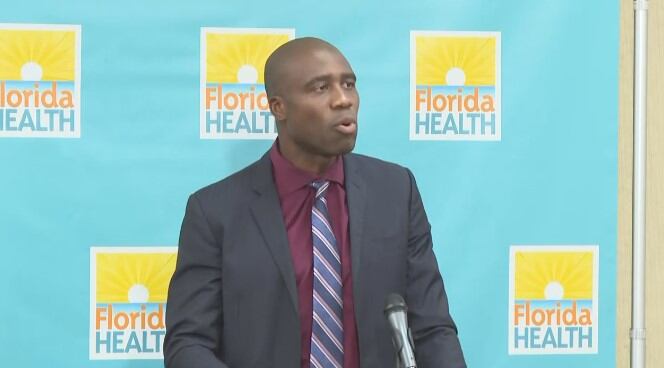TAMPA, Fla.
– The Florida Surgeon General expressed support for recent federal changes on mRNA COVID-19 vaccine recommendations and urged expanded attention to vaccine injuries during a news conference.
In May
, Health Secretary Robert F. Kennedy Jr. announced that he was removing COVID-19 shots from the Centers for Disease Control and Prevention’s recommendations for healthy children and pregnant women.
Recommended Videos
“Very few children, very few adults are putting these mRNA COVID-19 vaccines in their bodies,” said Ladapo. “We still have older people doing it, but fewer people who are older doing it also, and they shouldn’t be doing it because they are not fit for human use.
”
[VIDEO: The lingering effects of the COVID-19 pandemic]
Ladapo went on to share his medical experience, saying he had never seen vaccine injuries before the pandemic but now knows many who have suffered adverse reactions from mRNA vaccines.
U.S. health officials, following recommendations by infectious disease experts, have been urging annual COVID-19 boosters for all Americans ages 6 months and older.
Ladapo was tapped in September 2021 by Gov. Ron DeSantis to serve as surgeon general and secretary of the Florida Department of Health and has become a
controversial national figure
because of his positions on issues such as COVID-19 vaccines and mask requirements.
In January 2024, Florida’s top doctor called for a halt to the use of COVID-19 vaccines.
In March, Ladapo also
expressed his support
for Gov. Ron DeSantis’ call to action against MRNA vaccine mandates in Florida.
MRNA, which stands for messenger ribonucleic acid, is a molecule that copies your DNA’s instructions and brings them to the protein-making structures in your cells, called ribosomes. The ribosomes use those instructions to make proteins for your body.
An
mRNA vaccine
takes the instructions from a pathogen and carries them to your immune system, so that it can create the tools to fight off the infection that pathogen causes.
Human trials for use against infectious diseases began in 2013, and researchers were testing the vaccine for rabies, influenza, Zika and other diseases when the pandemic came along in 2020. The COVID-19 vaccine was approved for emergency use after several trials on Dec. 11, 2020.








